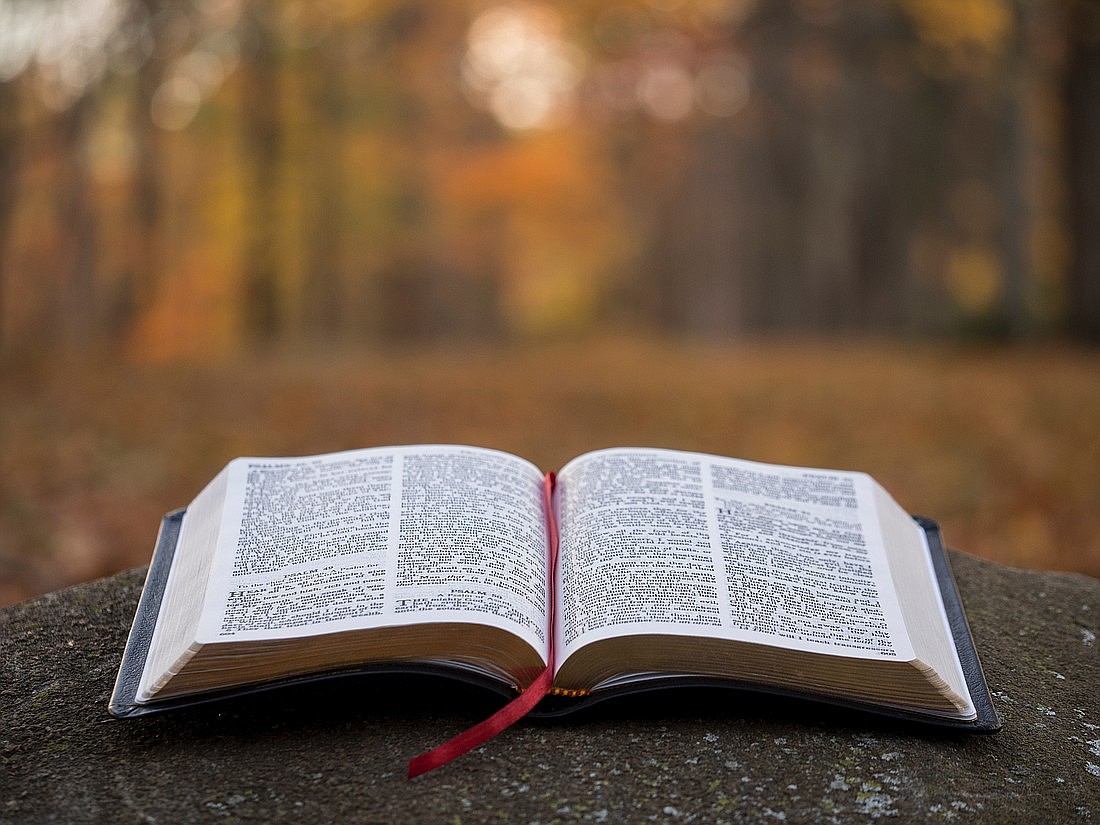June 18, 2025 at 10:08 a.m.
Nothing but you
Taking the five loaves and the two fish and looking up to heaven, he gave thanks and broke them. Then he gave them to the disciples to distribute to the people. — Luke 9:16
Saint Thomas Aquinas, toward the end of his life, was asked to write a treatise, a compendium, on Eucharistic theology to encapsulate all that we, as Catholics, believe about the Eucharist. He wrote and he wrote and he wrote, until he could write no more, and in a rare moment of frustration, he took the manuscript that he was writing and threw it at the foot of the crucifix. The story is that the corpus, the figure of Christ on the Cross, came to life and spoke to St. Thomas Aquinas. Jesus spoke to Thomas and said: “Thomas Aquinas, no one has written as well as you have concerning my Eucharistic body and blood. Whatever it is that you want the most, I will grant you.” Imagine if Jesus spoke to you, right here, right now, and said to you, “Whatever it is you want most in the world, I will grant to you.” What would you say? What would I say? What would I really say? Thomas Aquinas looked at the Lord squarely in the eyes and said three little words, and, of course, they were in Latin, because that’s what they were speaking then, three little words: NIL NISI TE, which means NOTHING BUT YOU. What do you want most in the world? Nothing but you.
Thomas Aquinas knew that if he had Jesus in the Eucharist, he had everything. Padre Pio once said, “It would be easier for the world to survive without the sun than to do without Holy Mass.” The Eucharist is the single most important thing in the universe, the most precious gift that God has given to man. The Eucharist is not just a “nice thing,” not merely a symbolic sign of sharing and community; it is Christ’s true body and true blood.
At Holy Mass, we come to celebrate the single greatest gift: the Second Person of the Most Blessed Trinity, the Son of God, comes to us, to feed, to strengthen, to nourish us in the simplest of accidents, the simplest of food, the staple of the diet of the Palestinian culture of Jesus’ day. He comes to us in this simple, humble way. Jesus, ever meek and humble of heart, the Sacred Heart whom we honor and adore, this Jesus comes to us as food; he enters us, becomes one with us, and, unlike earthly food which becomes integrated into us, this heavenly food makes us becomes more and more like him whom we receive.
I have to say that I love Mass. I really, truly do. It’s the main reason I’m a priest. When I was a high school student, every single day we had to attend Mass as part of the school day, and I thank God that we did. I would look up at the altar and see those priests who were teaching me in classes, reverently celebrating Mass, and I wanted to do that, too. I wanted to be like them because they had this great gift, this great ability. I have been so blessed in my life as a priest because every single day in my life (except for one, actually the day Pope Benedict XVI came to Yankee Stadium in New York and we were not permitted to concelebrate, only to distribute Holy Communion), I have been able, and sometimes, due to pastoral circumstances several times a day, offer Holy Mass. I know how unworthy I am to do this; I know I am a sinner, but I know that this is why I was born. In spite of me, through my hands and the hands of my brother priests, at this altar, heaven and earth meet, time and eternity kiss, God and man are once again reconciled.
Two things, then, for us. First, if we believe in the Real Presence of Christ, how do we receive the Eucharistic Lord? Do we consciously show reverence and acknowledgment to the Real Presence of Christ in the Eucharist, or has it become a mere casual act? And further, does the reverence we show draw more attention to ourselves or to the Eucharist Lord? Do we prepare ourselves for Mass, acknowledging consciously what it is we are doing and where we are, in spite of the distractions?
Second, what are the moral implications of our reception of Holy Communion? How is our day different because we have received Holy Communion? Is my day different because I have celebrated Mass? Do I recognize the Christ who lives in you and transforms you more and more by the Communion that you have received? Do we strive to see Christ in each other?
This Sunday, on this Feast of Corpus Christi, filled with love incarnate, the Eucharistic Jesus shines like the sun. Let everyone whom you encounter know, by your love, that they, too, are shining like the sun.
- Tanzania’s Cardinal Pengo remembered as giant of faith, a ‘towering presence’ for Africa
- Bishops urge prudence, prayer, invoke Guadalupe’s protection as violence erupts in Mexico
- St. Francis’ relics open to public for first extended veneration in 800 years
- ‘We will grow in wisdom, holiness together,’ new bishop of Tucson, Ariz., tells faithful
- Pope renews ‘heartfelt appeal’ for ‘immediate ceasefire’ in Russia-Ukraine war
- Full text: Pope Leo XIV’s Angelus address given February 22, 2026
- God offers new possibilities, not prohibitions, with his invitation to love, pope says
- Find comfort, strength in Eucharist, pope tells attendees at LA Religious Education Congress
- Pope Leo XIV tells priests not to use AI to write homilies or seek ‘likes’ on TikTok
- Historical novel pitches Christian compassion against ideologies of hatred








Comments:
You must login to comment.